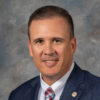Tuesday, Tuscaloosa Mayor and Democratic gubernatorial candidate Walt Maddox announced that if he is elected governor, he will push to expand Medicaid in the state.
“As Governor, I will immediately move to expand Medicaid, accepting the offer of federal funds for pennies on the dollar, free money that Alabama has inexplicably and inexcusably refused,” Maddox said. “These billions of additional dollars will have multiple short and long-term benefits that will save our rural hospitals from further devastating closures and hopefully allow some that have already closed to reopen; provide more and better services to children, the elderly, the disabled, and hardworking people who cannot afford health insurance; act as an economic stimulus by creating new, high paying jobs, both in traditional healthcare and in the development of new medical technologies that benefit everyone; and allow Alabama to take a major step up from the bottom of the nationwide health rankings, where we currently come in at an embarrassing 47th overall.”
The controversial Patient Protection and Affordable Care Act of 2010 (better known as Obamacare) ordered all of the states to expand their Medicaid programs to include poor, non-disabled, non-elderly, non-pregnant adults. Alabama was one of several states that sued the federal government to block the controversial federal mandate.
The U.S. Supreme Court ruled in favor of Alabama and the states. They can not be compelled to expand their Medicaid programs. A healthcare task force was assembled to look at the cost of expanding Medicaid. Ultimately, then-Gov. Robert Bentley decided not to expand the entitlement program.
“Our former and current governors have sold Alabamians a bill of goods by falsely claiming that expansion of Medicaid equates to government handouts to able-bodied people who won’t work,” Maddox claimed. “This lie completely mischaracterizes the nature and importance of the expansion, which would secure much needed additional services to vulnerable populations that are unable to work and provide new coverage to almost 200,000 hardworking Alabama citizens who cannot afford health insurance.”
“Indeed, this bogus objection by Republican administrations can be completely put to bed by including a requirement that individuals who are capable either have a job or work to find a job,” Maddox continued. “A work requirement certainly is not feared by those potential Medicaid recipients who already have jobs but do not have employer provided health insurance and who cannot afford insurance because their paychecks are already stretched to pay for food, shelter, and other more immediate needs. The failure to expand Medicaid has denied children, the elderly, and the disabled vast improvements to their quality of life, and has denied working people who live paycheck to paycheck a means to lift themselves up, all for the political sham of pandering to our distaste for helping those who can help themselves.”
Children, the disabled, and poor seniors are who are presently covered by the Alabama Medicaid Agency. They already receive benefits.
“Medicaid expansion will save our rural hospitals,” Maddox claimed. “The closure of so many of these essential medical centers over the past several years is increasingly denying healthcare access to rural Alabama. This is a concern not only to people who live in these communities – it should be of equal concern to families who travel through any of the 55 rural Alabama counties and may need emergency services, or who consume food and other products from Alabama’s strong agricultural industry.”
“The hospital closures kill jobs, which strains the economic engine of the entire state,” Maddox charged. “Rural hospitals are a top five employer in most rural counties of Alabama, and when we say no to Medicaid expansion we are saying no to jobs and continued healthcare access to anyone who lives or travels through rural Alabama. Healthcare is not just a problem to be solved, it is an opportunity for economic development by bringing the technologies of tomorrow to cure and treat the medical conditions of today. Expansion will give us the resources to develop and improve precision medicine programs, gene therapy, life-saving research, and other advanced medical technologies that will extend lives, improve quality of life, and benefit everyone in Alabama regardless of whether they are a direct beneficiary of Medicaid.”
Obamacare pays for the first few years of a Medicaid expansion; but after that initial period the states have to pay massive amounts of money in additional Medicaid matching funds. Medicaid is already by far the largest line item in Alabama’s general fund budget (SGF) and any future expansion of the program would likely necessitate massive revenue increases, likely substantially larger than what would be generated by a state lottery or allowing the dog tracks to run electronic bingo games–activities that are both presently unconstitutional under Alabama’s 1901 Constitution. The fear of many Republican legislators is that poor working adults who currently qualify for heavily subsidized healthcare insurance through Obamacare will drop their Obamacare policies and instead go on Medicaid which has $0 co-payments and deductibles for most hospital stays and doctors office visits.
“New technology means new jobs, which in turn means more employer-provided health insurance, creating a synergy of success that builds upon itself to the benefit of all,” Maddox claimed. “By stoking the engine of the healthcare industry, we can move Alabama from its current tendency to rely on the emergency room as a first treatment option to more effective and cost efficient preventative medicine. From opioid abuse to obesity to heart disease and beyond, health problems that can be prevented are at the core of rising costs in healthcare because they fuel multiple chronic conditions. Nowhere is the adage that an ounce of prevention is worth a pound of cure more true than in healthcare, and Medicaid expansion will enable us to do that better than ever before.”
“We also need to develop and improve telemedicine use and availability, which will allow specialists in advanced medical centers to treat patients anywhere in the state,” Maddox added. “This will enable rural hospitals to partner with larger, urban institutions and facilitate their transition to acute care facilities without closing them. Expanded use of nurse practitioners and other mid-level providers further will fill gaps in our medical services.”
“Alabama’s current medical model is morally unacceptable and economically unsustainable. To paraphrase a famous scientist, we keep gazing at our feet when we should be looking to the stars. There’s no limit to our state’s potential, and a healthier Alabama is an essential first step,” Maddox concluded.
Republicans had hoped that GOP majorities in both Houses of Congress would result in the unpopular Obamacare being repealed, but Senator John McCain, R-Arizona, blocked the bill to repeal and replace Obamacare and deregulate the healthcare industry. Obamacare is still the law of the land although there is no longer a mandate that all American residents have to obtain healthcare coverage or face penalties enforced by the IRS (Internal Revenue Service).
While technically any governor could sign an agreement to expand Medicaid, legislators have told the Alabama Political Reporter that it can’t be implemented without the legislature appropriating the funds for the matching funds in the state general fund budget and the Republican Super Majority has not been enthusiastic about the prospects of adding any additional funds for the already enormously expensive state Medicaid program.
Maddox faces a crowded field in the Democratic Party primary on June 5.



















































